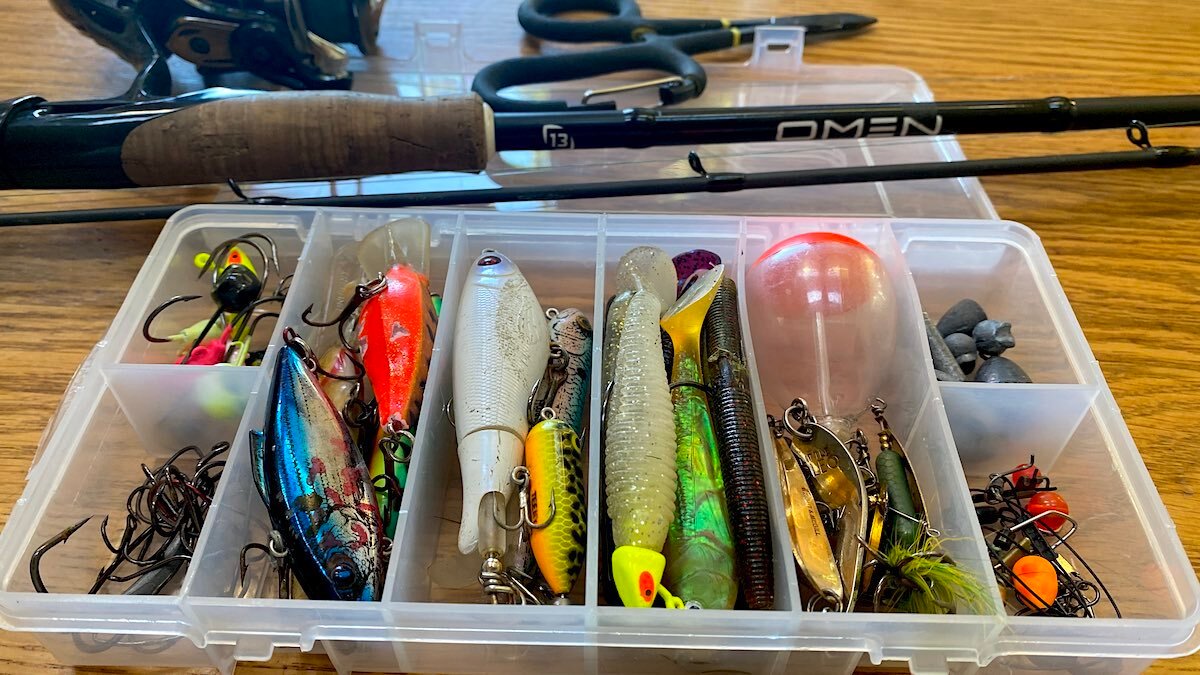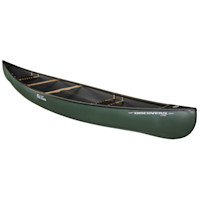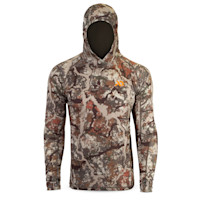
Are you a real angler if you don’t keep a rod stashed somewhere in your vehicle and a random assortment of lures and flies stabbed into the headliner? The answer is no, but fear not, there’s plenty of time to rectify your breach of dedication to the piscatorial pursuits.
For me, summer is the season of exploration. As often as work will allow, I’m driving far and wide across the Western United States, checking out new waters, scouting for elk and deer, attending bow shoots, visiting friends and family. You drive over and past a lot of water in such wanderings. Some such waters have a magnetic effect on me, subliminally forcing my hand to crank the wheel, pull over the truck, and have a look. Sometimes it only takes a few casts to write it off. Sometimes it will derail plans for an entire weekend when you, for example, find a central Montana pond stacked with thick smallmouth you didn’t know were there.
As the good Boy Scout that I am, I always seek to be prepared. My main tackle boxes often live in my truck for the summer, but I might not think to haul them on, say, a pronghorn scouting venture. For that reason, I leave a two-piece spinning rod tucked behind the backseat headrests and a small, pocket-sized tackle box containing enough gear to be dangerous anywhere I should wind up. Here’s what’s in it:
Hardware I recently wrote that the spoon is the world’s most versatile lure. A lot of people argued that it’s actually one-or-the-other type of spinner. They’re wrong, but it doesn’t make me love spinners any less. Both types of hardware lures are incredibly valuable for quickly searching and assessing any number of roadside waterways for a variety of species, from trout and bass to panfish and pike. Spoons are also lights-out on countless saltwater species from salmon to snook and stripers to steelhead. I prefer straight metallic finishes, but that’s not to say some variance is bad.
Little Cleo Spoon Krocodile Spoon Swedish Pimple Rooster Tail Spinner Panther Martin Spinner Vibrax Spinner
Crankbaits A primary factor in any conventional angler’s tackle bag is an assortment of crankbaits. MeatEater bass contributor Pete Robbins swears that the Rapala Shad Rap is the best there is, but it’s clearly not the best call for all situations. When selecting cranks for a little pocket box, I try to cover the whole water column with a shallow diver, a mid-depth, and a deep diver. It’s helpful within that lineup to bring some diversity to colors to match different forage or water conditions.
Shad Rap (deep) Rattlin’ Rapala (lipless, mid-depth) Original Floating Rapala (shallow) BX Brat (squarebill, shallow)
Topwater The other greatest thing about summer is how warm water can excite fish enough to crush lures on the surface. If there’s a higher calling, I don’t want to know what it is. And I’m not just talking bass here; pike and muskie are great fun on top and I watched my dad catch a bigger brown trout than most people will ever see on a Whopper Plopper. You don’t need a lot of gear to cover your bases on the surface, but it will help to think it terms of loud and disruptive, sleek and seductive, popping, and weedless.
Plastics I also recently wrote that the Yamamoto Senko is the greatest soft plastic of all time (guess we like that hyperbole, huh?). I could also see myself making the same argument for the paddletail swimbait. Ultimately though, conditions dictate what is best and plastics pack down, so jam as many in your truck box as you can manage. Here’s a few basics to consider:
Hooks and Jigheads You’ll need a few styles of hooks to manage all the above baits and lures. I carry a bunch of miscellaneous types that could be useful for setting bait or rigging stingers. There’s not really a downside to having a broad array because you never know what opportunity will present itself.
Octopus hooks (#2-4) Treble hooks (#2/0-14) Extra-wide gap (EWG) bass hooks (#1/0-3/0) Circle hooks (1/0) Baitholder hooks (#8-10)
Weightsyou I won’t belabor the point that lots of styles and sizes are valuable to carry. Here are a few basics to consider:
Terminal Tackle It can’t hurt to carry extras of the little pieces that make lures function. A spoon isn’t a spoon without a swivel, and a slip bobber doesn’t work without a bobber stop. These tools also help put together whatever complex rig you might invent on some lazy summer day to trick a finicky carp or catfish.
Snap swivels Barrel swivels Split rings O-rings Beads Slip bobber Bobber stops Steel leader








